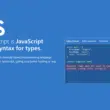Are you facing the “ValueError: could not convert a string to float” error in Python while converting a string into a float?
In this article, we’ll discuss the “ValueError: could not convert a string to float” error in Python and how to fix it. This error occurs when you pass a string into the float() to convert it into a float, and the string isn’t supported.
To understand the concept correctly, let’s dive deep into it and learn using a practical example.
Table of Contents
How Does float() Work in Python?
The float() function type casts any right and acceptable data types into a float number. So even if you provide a string and it’s a valid value for the float function, it’ll convert it into a floating number.
Code
# decimal to float decimal_num = 10 float_num = float(decimal_num) float_num
Output
10.0
As you can see in the above example, we have converted the decimal number 10 into a float number 10.0. And to verify that it is working as expected, let’s check the data types of decimal_num and float_num using the type() function.
Code
# decimal to float decimal_num = 10 print(type(decimal_num)) float_num = float(decimal_num) print(type(float_num))
Output
<class 'int'> <class 'float'>
Before type casting, the type of the number 10 was int, whereas, after conversion, the data type is converted into float, as demonstrated in the above example.
Alright, now we have understood type casting in Python and how the float function works 🙂 let’s see what is ValueError could not convert string to float in Python and why it occurs.
What is the “ValueError: Could Not Convert a String to Float” Error in Python?
In Python, if you convert a string object into a floating point, you may face the ValueError could not convert the string to float numerous times. Usually, this happens if the string object is an invalid parameter to the float().
Code
# decimal to float decimal_num = "10a" # invalid value float_num = float(decimal_num) float_num
Output
ValueError: could not convert string to float: '10a'
As you can see, the error itself is self-explanatory; it says that ValueError: could not convert string to float: ’10a’. So we are trying to convert 10a, which isn’t a valid numeric value, into a floating point value; hence we are getting the ValueError.
Usually, this error occurs when you attempt to convert a string to float that contains invalid characters like spaces, commas, special characters, and invalid combinations of numbers and alphabets.
How to Fix the “ValueError: Could Not Convert a String to Float” Error in Python?
Alright! We are right there to fix the ValueError 🤩 let’s fix it. To fix it, you need to provide a numeric value, whether a string or a decimal.
Code
# decimal to float decimal_num = "100" # Valid numeric value float_num = float(decimal_num) float_num
Output
100.0
Code
# doller to float num dlr = '$100' flt_dlr = float(dlr) flt_dlr
Output
ValueError: could not convert string to float: '$100'
In the above code, the error occurs because of the special character $ because the float() function does not support special characters. In such scenarios, you can replace the () function to get the job done. So let’s see how we can fix it in the following example:
Code
# doller to float num dlr = '$100'
dlr = dlr.replace("$", "")
flt_dlr = float(dlr)
print(flt_dlr)
Output
100.0
Use Exception Handling to Fix the “ValueError: Could Not Convert a String to Float” Error in Python
In computer programming, errors and exceptions are expected that you face, but we are still blessed with advanced programming concepts that help us handle errors and exceptions. And exception handling is one of the techniques that helps us handle the errors before crashing your program.
Let’s use try-except blocks to handle exceptions in Python:
Code
# try block
try:
dlr = '$100'
flt_dlr = float(dlr)
print(flt_dlr)
# except block
except:
print ("ValueError: 'Please provide a valid value to the float()' ")
print("\nWow! the program isn't crashed.\nIsn't Exception handling cool")
Output
ValueError: 'Please provide a valid value to the float()' Wow! the program isn't crashed. Isn't Exception handling cool
Conclusion
To summarize this article on how to fix the “ValueError: could not convert a string to float” error in Python, we have discussed the working of the float() function and the conversion of a string or integer value into a floating point value.
In most cases, we are dealing with string data in computer programming, whether retrieving data from a CSV file or getting dynamic input from the user in run time. And to manipulate the data, we must typecast it into the required data type like float, string, boolean, or octal.
Let’s have a quick recap of the topics discussed in this article
- How Does the float() Function Work in Python?
- What is the “ValueError: Could Not Convert a String to Float” Error in Python?
- How to Fix the “ValueError: Could Not Convert a String to Float” Error in Python?
- How Does the replace() Function works?
- How to Handle Expectations in Python?
Time to explore more 🔍, how to display a float with three decimal places in Python.












